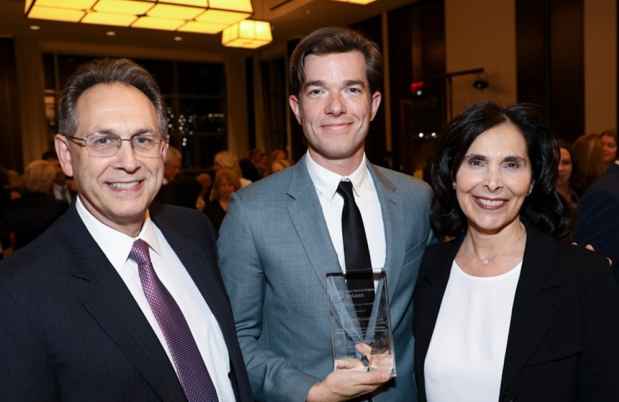Monica Luke knows what it’s like to care deeply about someone with schizophrenia. Her son, now 37, had his first psychotic break at age 20 and hasn’t spoken to her in a decade. Although she’s pained by the estrangement, she’s thankful for one thing: she could use his college fund to pay for his care over the years. But many families whose loved ones struggle with chronic mental illness are not so fortunate.
That’s why Luke and her partner, David Jacobs, established the Living Assistance Fund at McLean. The couple supports the fund personally and actively fundraises for it throughout their community.
At first, the fund supported a couple of patient stays each year at Appleton, McLean’s self-pay residential program for people with chronic or recurring psychiatric conditions. Luke quickly realized she could help many more people through a less costly non-residential alternative. So, she and a team at McLean collaborated for months and hatched a plan for introducing an empirically-validated model known as the Program of Assertive Community Treatment, or PACT.
Launched in October, McLean’s PACT helps clients with severe and persistent mental illnesses, such as bipolar and psychotic disorders, create and maintain lives that are healthful, fulfilling, and as independent as possible. While PACT teams have been around since the 1970s and are found in a couple dozen states, McLean’s is one of just a few in Massachusetts. Although the concept is consistent, there is variability in its implementation. Private-pay PACTs, which tend to have the lowest patient-to-staff ratios and high amenities, are financially out of reach for most families, and state-financed ones often are under-resourced. Luke hopes McLean’s PACT will fill that gap.

Studies of PACTs have shown that their wraparound supports and ability to intervene quickly when illness worsens helps keep clients out of the hospital (or shortens lengths of stay) and reduces homelessness and incarceration. Each client is assigned a multidisciplinary team whose members—a nurse practitioner, social worker, and community outreach worker—assist with any number of needs: managing medications, helping with errands, accompanying clients to social events, assisting with job searches, and handling crises, to name just a few. (A peer specialist will be added in year two.) PACT is community-based, meaning interactions take place in the client’s home, neighborhood, and town or city. The PACT team also educates clients and families about the illness, so both are better able to cope with the challenges; family involvement is key.
“In PACT, we think of every interaction with our clients as a therapeutic intervention,” explained Program Director Chloe Pedalino, LICSW, one of the program’s two social workers. “It might be accompanying them to the bank, taking a walk, or sitting beside them at the computer while they’re applying for college courses.”
PACT’s patient-centered ethos applying Open Dialogue principles means clients play a large role in shaping the approach to managing their illness. “Instead of saying ‘go take your meds,’ the team will engage clients in a conversation about how their illness is getting in the way of living their lives,” said Luke, a former technology executive who has become a full-time mental health advocate. “If they’re not worried about their symptoms, the team won’t be either.”
The Living Assistance Fund also supports a “scholarship” bed at Appleton for PACT clients who need respite housing or are at risk of becoming homeless.
Ultimately, Luke hopes McLean’s PACT will serve as an affordable model of community-based care that will spread and someday be reimbursed by private insurers.
For more information, visit the Living Assistance Fund website, or you visit our giving pages to make a gift to support McLean’s PACT.
Media Requests
Journalist or member of the media? We are available 24/7 for media requests.



